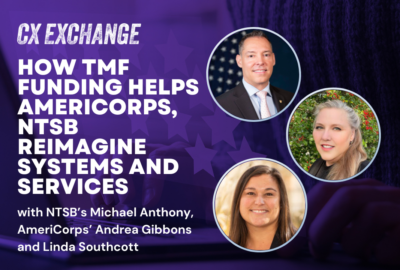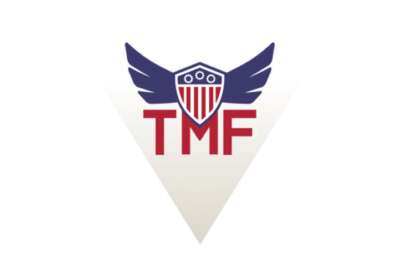First Look
State, NOAA, Education win new IT modernization money
The Technology Modernization Fund Board awarded three agencies a total of $49.2 million for AI, IT modernization and cybersecurity projects.
The Technology Modernization Fund Board is making its first investment in generative artificial intelligence as part of awarding four new investments to three agencies worth $49.2 million.
The State Department received its first two awards from the TMF, including $18.2 million to use GenAI in its data environment to improve the sharing and understanding of information among all of its offices around the world.
The Commerce Department’s National Oceanic and Atmospheric Administration (NOAA) also won its first award, while the Education Department received its second TMF investment.
NOAA is receiving $12 million to modernize Weather.gov, while Education is slated to get $5.9 million to add new functionalities to the MyStudentAid.gov website.
“As chairwoman of both the TMF Board and Chief Artificial Intelligence Officers Council, I’m thrilled to see our catalytic funding stream powering the use of AI and improving security at the State Department,” said Clare Martorana, federal CIO, in a statement. “I’m equally excited about the TMF’s two other critical investments — with students getting more modern access to manage their education journeys and the public gaining access to lifesaving weather information in an accessible manner for all.”
State to get help managing data
State’s award to implement GenAI is the first one under the TMF Board’s plan to give an expedited review to agency AI proposals seeking $6 million or less and for projects that will take 1.5 years or less to complete.
The board said State will use the money to implement GenAI to better manage data and let employees make data-driven decisions faster.
Among the areas State will invest in are:
- Modernizing existing processes for seamless integration
- Creating responsible GenAI guidance
- Developing enterprisewide and targeted GenAI communication products
- Establishing GenAI training for personnel at all levels
- Preparing an interagency playbook on implementing responsible GenAI across a government organization
“This investment marks a pivotal moment to reshape how State conducts diplomacy and promotes American interests worldwide,” said Dr. Matthew Graviss, State’s chief data and AI officer. “This project will enable our diplomats to focus on essential analysis and strategic engagement, boosting our efficiency and strengthening America’s global diplomatic advantage.”
The board said in 2023 alone, State personnel produced an average of 6,300 diplomatic cables every day, alongside countless media summaries and structured reports.
“This torrent of data demands exhaustive effort as staff sift through news reports, trade analyses, diplomatic communications, and more. By leveraging GenAI, State aims to allow its personnel to rapidly distill insights when they need it most and refocus time on achieving effective diplomatic outcomes,” the board said.
For its second TMF award, State would get $13.1 million to transition its identity management security approach to a zero trust architecture model.
Under this project, State will establish a centralized and secure system for managing digital identities and access. The board said this approach to identity and access management will provide State employees with a consistent credential management experience, enable faster updates to access requirements and enhance the management of users and access through advanced identity capabilities.
“TMF funding aims to accelerate the creation of a comprehensive Consolidated Identity Trust to consolidate user attributes, modernize privileged identity access to safeguard critical resources, and implement centralized workflows for automating onboarding and off-boarding processes,” the board said. “These initiatives will strengthen State’s ability to uphold high information security standards and ensure compliance with federal mandates related to ICAM. By centralizing identity and access management and adopting a zero trust approach, State will be positioned to better protect its systems and data against evolving cyber threats while also improving operational effectiveness.”
The board said 76% of all investments over the last nearly seven years have been for cybersecurity projects.
Website facelift for NOAA
The $12 million NOAA is slated to receive aims to help the agency modernize operations across over 150 National Weather Service offices worldwide.
The board said the redesigned platform would not only enhance information accessibility, but also establish a sustainable, mobile-first infrastructure.
“This modernization effort plans to integrate features such as language translation capabilities to improve access for underserved communities,” the board said. “[T]his project aims to redevelop Weather.gov and the application programming interface (API) to deliver critical weather, water and climate information to every American, quickly and reliably, and in the format and language they need. The new website will have higher reliability and a focus on [Section] 508 compliance and accessibility best practices, including language translation capabilities, helping NWS reach underserved groups like never before and increasing the discoverability and reliability of data.”
The board said 76% of all investments also have been for modernizing high-priority systems like Weather.gov.
Federal Student Aid will use $5.9 million to implement the “My Activity” feature on StudentAid.gov. The board said this new feature aims to consolidate documents and data, providing users with a centralized and user-friendly platform to track their activities and status. FSA anticipates a reduction in wait times and the need for customer care inquiries, the board states.
“[T]his project will allow FSA to implement data and software technology that will decrease agency costs over time. By increasing borrowers’ ability to easily take actions directly, FSA anticipates a decrease in wait times and customer care emails, calls and chats. Decreasing inquiries will result in significant savings in FSA annual customer care costs,” the board said.
So far in calendar year 2024, the board has awarded funding to nine projects across eight agencies.
“Investing in innovation transforms challenges into opportunities,” said Larry Bafundo, the acting TMF executive director, in a release obtained by Federal News Network. “TMF investments aren’t just about upgrading systems; they’re about transforming the very fabric of how services are delivered. We’re proud to empower agencies like the U.S. departments of Education, Commerce and State to enhance services, fortify security and foster efficiency.”
Dealing with funding cuts
Overall, the TMF Board has invested $900 million in 57 projects across 32 agencies since Congress established the fund in 2017. Of all the investments, the board used some of the $1 billion funding it received in the American Rescue Plan Act on 46 projects.
These investments come on the heels of Congress rescinding $100 million from the TMF as part of the fiscal 2024 spending bill.
Drew Myklegard, the deputy federal CIO, said in an interview earlier in May that Congress had to make a lot of tough decisions when it comes to funding.
“They have a requirement to balance both spending and the value they are getting. They have to make hard choices on the Hill all the time. They were not targeting one project,” he said. “They were like ‘how do we make this work for the American people?’”
Myklegard said he would expect size of TMF investments will not be the same, but likely the number of projects that receive money will not be effected. He said agencies will be held more accountable for repaying the TMF loans.
“We’ve put a significant amount of money in the last number of years into cybersecurity and other areas. These are not one-year programs when we make these commitments. We are making them over time so there are milestones that the projects that need to hit and continue to get funded. Those will continue,” he said. “I get excited over these projects that are smaller and dependent on individuals who will bring massive change.”
Copyright © 2024 Federal News Network. All rights reserved. This website is not intended for users located within the European Economic Area.
Jason Miller is executive editor of Federal News Network and directs news coverage on the people, policy and programs of the federal government.
Follow @jmillerWFED







